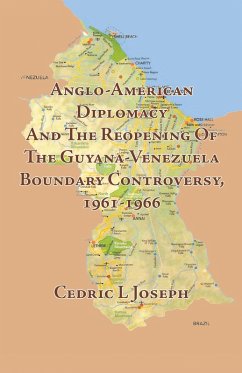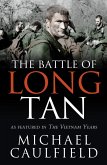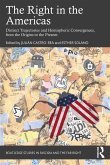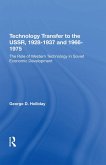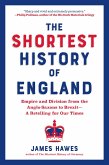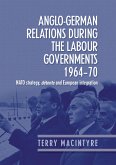This book is about Anglo-American involvement in the reopening of the border controversy between Guyana, formerly British Guiana, and Venezuela. The dispute over the border commenced in the mid-nineteenth century when Venezuela asserted a claim to some two-thirds of the territory of the British colony.
Great Britain's refusal to refer the delimitation of the border to arbitration developed into a major crisis in Anglo-American affairs in 1895. The United States had assessed the issue as a major challenge to the Monroe Doctrine and it would provoke the two English-speaking powers close to military conflict.
In 1899, an arbitral tribunal met in Paris and agreed unanimously on the boundary line between British Guiana and Venezuela. That boundary line has been universally accepted.
In 1962 at the height of the Cold War, Venezuela repudiated the award claiming that it was a "political deal". Fidel Castro had assumed power in Cuba and there were anxieties about the spread of Communism in the Americas, particularly in British Guiana during the pre-independence premiership of Marxist oriented Cheddi Jagan.
Cedric Joseph examines the primary documents relating to the diplomacy of the administrations of John F Kennedy, Lyndon Johnson and British Prime Minister Harold Macmillan. He explores their special relationships, sympathies and acute predisposition towards Venezuela that permitted the reopening of the boundary issue and ultimately sacrificed the territorial integrity of Guyana.
He also establishes the collusion between Suriname's claim to territory in Guyana and the Venezuelan claim.
Great Britain's refusal to refer the delimitation of the border to arbitration developed into a major crisis in Anglo-American affairs in 1895. The United States had assessed the issue as a major challenge to the Monroe Doctrine and it would provoke the two English-speaking powers close to military conflict.
In 1899, an arbitral tribunal met in Paris and agreed unanimously on the boundary line between British Guiana and Venezuela. That boundary line has been universally accepted.
In 1962 at the height of the Cold War, Venezuela repudiated the award claiming that it was a "political deal". Fidel Castro had assumed power in Cuba and there were anxieties about the spread of Communism in the Americas, particularly in British Guiana during the pre-independence premiership of Marxist oriented Cheddi Jagan.
Cedric Joseph examines the primary documents relating to the diplomacy of the administrations of John F Kennedy, Lyndon Johnson and British Prime Minister Harold Macmillan. He explores their special relationships, sympathies and acute predisposition towards Venezuela that permitted the reopening of the boundary issue and ultimately sacrificed the territorial integrity of Guyana.
He also establishes the collusion between Suriname's claim to territory in Guyana and the Venezuelan claim.
Dieser Download kann aus rechtlichen Gründen nur mit Rechnungsadresse in A, D ausgeliefert werden.

